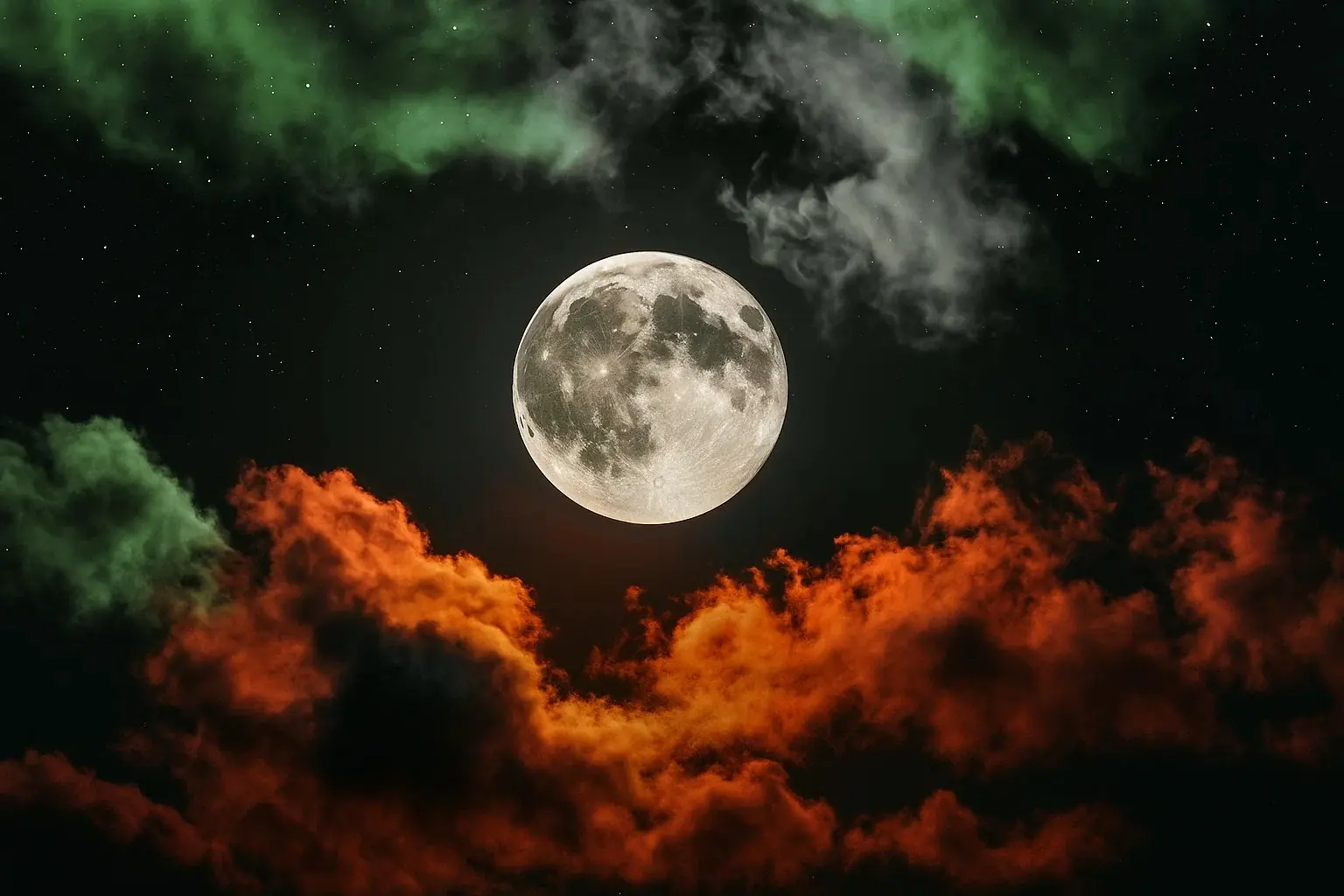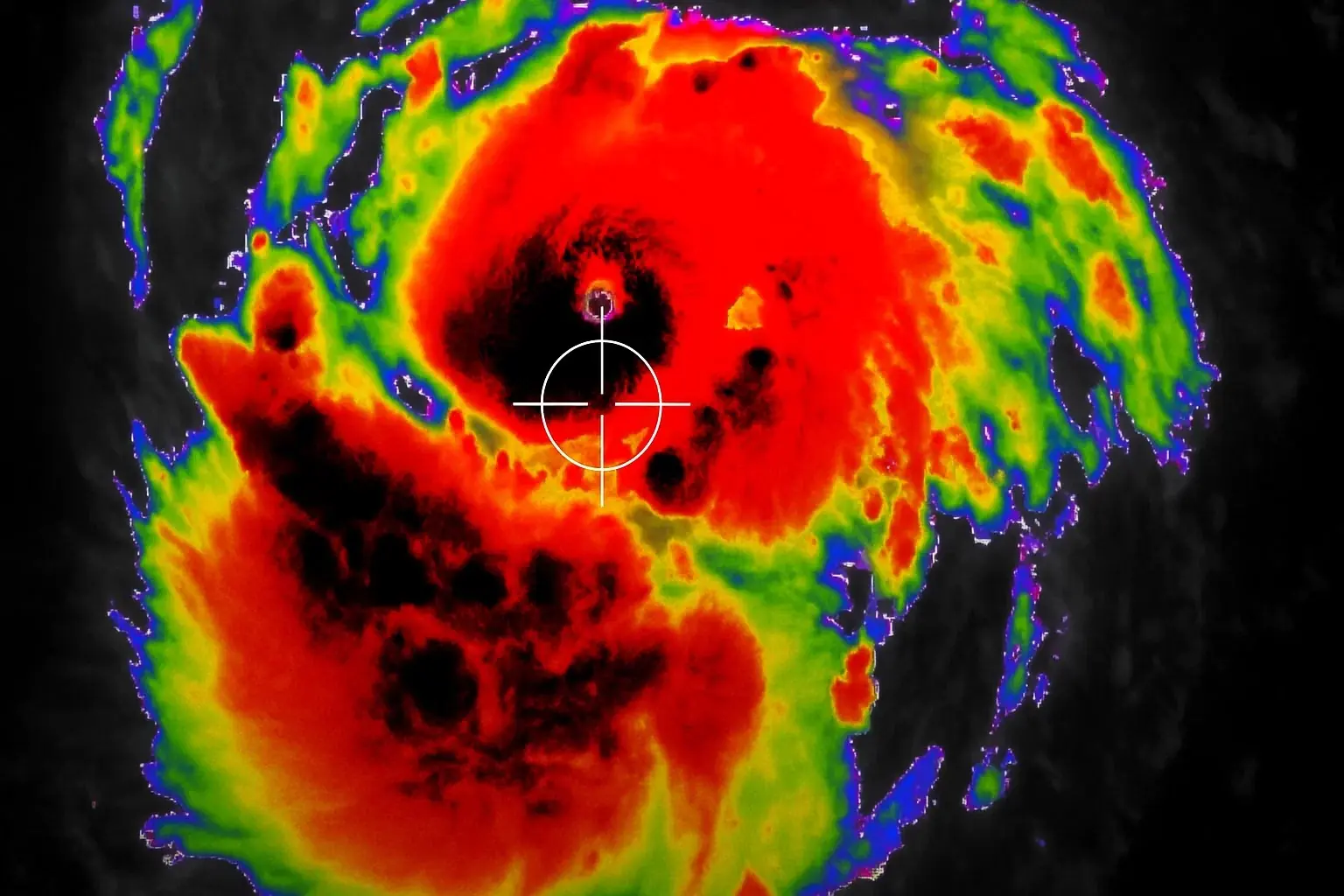
Rare Black Moon Phenomenon Will Darken the Skies This August—Astronomers Say You Can’t Miss It
A rare celestial event is set to unfold on August 22–23, 2025, as the mysterious Black Moon rises—an occurrence that blends astronomy, folklore, and a touch of cosmic wonder. Stargazers, astrologers, and sky enthusiasts around the world are preparing for one of the year’s most fascinating night-sky spectacles.
The term Black Moon may sound ominous, but in reality, it refers to a rare type of new moon that holds a special place in both folklore and astronomy. Unlike a regular new moon, which happens every month, a Black Moon occurs under unique circumstances—either when there are two new moons in a single calendar month or when four new moons appear in a single season, making the third one a Black Moon. This August, the skies will deliver the latter, with the moon reaching its dark phase on August 23 at 6:06 UTC (1:06 a.m. CDT). Depending on where you live, you may experience it late on the 22nd.
The Origins of the Black Moon
While the Blue Moon is a more familiar term, the Black Moon has a more shadowy history. Folklorist Philip Hiscock traced the modern definition of Blue Moons back to a 1946 misinterpretation in Sky & Telescope magazine, later popularized throughout the 20th century. The Black Moon, however, appears to have deeper cultural roots, with some historians linking it to Wiccan traditions and lunar folklore. Astronomy enthusiasts, websites, and even pop culture have since adopted the term, cementing its place in modern stargazing vocabulary.
Interestingly, Black Moons are not an official astronomical designation but rather a blend of cultural naming and observational patterns. Some sources even suggest the phrase can also apply to months without a new moon at all—a rare alignment that creates yet another twist in the moon’s mythology.
Why You Should Care About the Black Moon
Although you won’t see the Black Moon itself—since new moons occur when the moon is directly between Earth and the Sun—its impact is felt in the night sky. With the moon completely dark, the stars and constellations appear brighter and more visible, offering a perfect opportunity for stargazing. Astrophotographers and amateur astronomers especially look forward to Black Moon nights because the lack of moonlight reveals breathtaking views of the Milky Way and fainter celestial objects.
Skywatchers planning to experience this event should head to areas with minimal light pollution. Remote fields, mountaintops, or national parks often provide the clearest skies, allowing viewers to enjoy the enhanced brilliance of the cosmos.
Fun Facts About the Black Moon
- Frequency: A monthly Black Moon occurs about once every 29 months, while a seasonal Black Moon—like the one this August—appears roughly every 33 months.
- Past and Future Events: The last seasonal Black Moon took place on May 19, 2023. After August 2025, the next will arrive on August 20, 2028.
- Other Black Moon Dates: The previous monthly Black Moon was on December 30–31, 2024, with the next one set for August 31, 2027.
- Super Black Moon Ahead: On August 20, 2028, a super Black Moon will coincide with the moon’s perigee—its closest approach to Earth—making the event even more spectacular.
- Triple Black Moon: In 2033, lunar cycles will align for three consecutive Black Moons, a rare “triple event” that has skywatchers already marking their calendars.
A Blend of Science and Myth
Though the moon won’t visibly turn black, the concept of the Black Moon has captured human imagination for centuries. Some see it as a symbol of transformation and renewal, while others view it as simply another fascinating marker in the lunar calendar. Either way, the August Black Moon provides an opportunity to step outside, look up, and reconnect with the rhythms of the universe.
So, whether you’re a seasoned astronomer, a casual skywatcher, or someone drawn to the mystical symbolism of the moon, this Black Moon is an event worth witnessing. On the night of August 22–23, let the darkened sky remind you of the beauty and mystery that exists beyond our everyday view.
News in the same category


User 'terrified' after AI has total meltdown over simple mistake before repeating 'I am a disgrace' 86 times

$1M Plastic Surgery TV Star’s Transformation

My Wife Had a Baby with Dark Skin – The Truth That Changed Everything

Why Some Women Lose Their Desire: 4 Avenues to Explore

Why should you keep some money behind your phone case?

Choose a Ring and Discover Your Deepest Personality Trait
Jewelry is more than just an accessory—it’s a reflection of who we are. The rings we choose can reveal not only our fashion sense, but also our emotions, values, and even the deepest aspects of our character.

If You Notice A Man With One Painted Nail, This Is What It Actually Means
The Powerful Meaning Behind One Painted Nail—A Global Movement You Should Know About

Why do hotels always have a cloth across the bed?

URGENT WARNING: Hurricane Erin Strengthens to Rare Category 5 With ‘Catastrophic Damage’ Threat
Experts urge residents in vulnerable regions to remain vigilant, take official warnings seriously, and prioritize safety above all else.

15 Things You Should Never Plug Into A Power Strip

The HEALTHIEST FRUIT on Earth: what happens to your body if you eat just 3 a day...

Add This To The Water Your Floors Will Remain Clean For Weeks
With just a few simple ingredients you likely already have at home, you can transform your cleaning routine and enjoy a healthier, cleaner living space

Sensitive new details revealed after government papers were left behind at Trump-Putin meeting

Grok brutally calls Elon Musk a 'hypocrite' after ChatGPT CEO goes to war with Tesla billionaire

Police recover $30,000 worth of stolen Labubus from California home in bizarre heist

Here’s Why You Should Stop Storing Milk in the Refrigerator Door

Reasons Why Dogs Smell Your Crotch

What Your Palm Lines Say About Love and Marriage
News Post

NASA crew begins gruelling training for monumental mission that's not been done in 50 years

User 'terrified' after AI has total meltdown over simple mistake before repeating 'I am a disgrace' 86 times

Holy basil shown to cut stress hormone cortisol by 36% in 40 minutes

How to fall back asleep fast in the middle of the night (especially as you age)

Gout Patients Face Elevated Risk for Chronic Opioid Exposure

Booze, Bubbles, and Blood Sugar Trouble

$1M Plastic Surgery TV Star’s Transformation

My Wife Had a Baby with Dark Skin – The Truth That Changed Everything

lacing these 3 things on top of the fridge will cause wealth to disappear, no matter how much you have.

Buying bananas: Wise people turn away when they see these 3 types, while foolish ones grab them just because they’re cheap

Don’t soak frozen meat in plain water. According to chefs, there’s a way to defrost it in just 5 minutes while keeping it delicious.

Water heaters have a hidden 'switch.' Any household that knows how to open it can use it for 10 years without worrying about damage or high electricity bills

Mix white salt with fabric softener, solve many household problems, and save a lot of money.

Apply this on a knife, and no matter how dull it is, it will become razor-sharp and shiny, without needing a whetstone.

Inside the washing machine, there’s a ‘small box’ with an incredibly powerful function: Not knowing how to use it is such a waste.

Why Some Women Lose Their Desire: 4 Avenues to Explore

Why should you keep some money behind your phone case?

If You Have Colon Polyps, These 4 Signs While Using the Toilet May Appear – See a Doctor Before It’s Too Late

From age 65, how often should you shower (and why over-washing can be harmful to your health)
